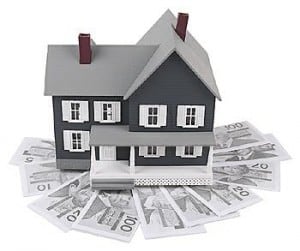Some Homes Don’t Qualify for 1031 Exchange
Second homes must be designated an ‘investment’ to reap tax benefits
by Tom Kelly, Inman News

The Internal Revenue Service would like you to choose, especially before you plan to sell it.
The subject came up recently over spring break when friends were getting ready to sell a golf-course property via a tax-deferred exchange and buy another home that was in a quieter neighborhood and away from the busy entry leading to their present development.
“That’s great,” I said. “I’m glad you found a place where you can use the same golf course. Will you be able to rent out the new place as much as the old place?'”
“We don’t rent out our home,” the owner said. “Never have.”
I was confused. If the house was not an investment property, how could the owners be conducting a tax-deferred exchange? According to Section 1031 of the tax code, no gain or loss is recognized on the exchange of property held for productive use in a trade or business or for investment if the property is exchanged solely for property of like kind that is to be held either for productive use in a trade or business or for investment.
Personal residences can’t be exchanged tax-free under Section 1031 because they aren’t held for productive use in a trade or business or for investment.
It turned out that the owner “was told by an adviser” that a tax-deferred exchange was permissible because he had purchased the home with the idea that it would eventually appreciate. Because it did appreciate, that constituted “an investment” property.
It turns out that our friends were not the only ones thinking this way, and the tax court made a ruling two years ago that provides clarity in such cases.
In Moore v. Commissioner, two owners exchanged one lakeside vacation home for another. Neither home was ever rented. Both were used by the taxpayers only for personal purposes. The taxpayers claimed that the exchange of the homes was a like-kind exchange under Section 1031 because the properties were expected to appreciate in value and thus were held for investment.
The tax court held, however, that the properties were held for personal use and that the “mere hope or expectation that property may be sold at a gain cannot establish an investment intent if the taxpayer uses the property as a residence.”
The Moore case failed the Section 1031 tax-free exchange test for a variety of reasons, according to the tax court. First and foremost, the parties never even attempted to rent out the property. Plus, they failed to claim any tax deductions for maintenance expenses or depreciation connected with the properties and they claimed interest deductions on both properties as home mortgage interest rather than as investment interest.
Strict personal-use rules of the investment property as a “second home” still apply. The period of the taxpayer’s personal use of the dwelling unit cannot exceed the greater of 14 days or 10 percent of the number of days during the 12-month period that the dwelling unit is rented at a fair market value.
Some clarity regarding tax-free exchanges did come out of the Moore case. The IRS basically stated that it recognized owners do take personal-use days in their investment properties. The IRS said it would provide a “safe harbor” to a tax-free exchange as long as other exchange rules are met. Before the Moore case, there was no personal-use language in any exchange material.
Revenue Procedure 2008-16 officially allows limited personal use of an investment property and will not prevent a dwelling unit from qualifying as property held for trade or business or investment use for purposes of the tax-free-exchange rules. The procedure reads:
“… a taxpayer’s dwelling unit (real property improved with a house, apartment, condominium, or similar improvement that provides basic living accommodations including sleeping space, bathroom and cooking facilities) will qualify as property held for productive use in a trade or business or for investment for Section 1031 purposes even though they occasionally use the dwelling unit for personal purposes.”
So, take your pick and label your getaway a second home or an investment property. You can also hope they “appreciate,” but be careful how you apply the term.
Tom Kelly’s book “Cashing In on a Second Home in Mexico: How to Buy, Rent and Profit from Property South of the Border” was written with Mitch Creekmore, senior vice president of Houston-based Stewart International. The book is available in retail stores, on Amazon.com and on tomkelly.com.
Copyright 2010 Tom Kelly
See Tom Kelly’s feature What To Expect at a Real Estate Auction.
To subscribe to our blog, click here.















 Accessibility
Accessibility